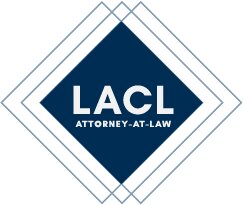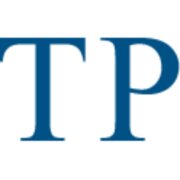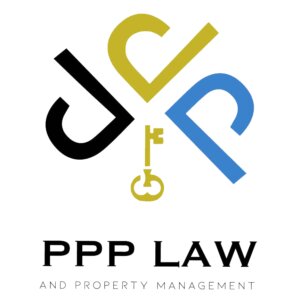Best Financial Services Regulation Lawyers in Huai Khwang
Share your needs with us, get contacted by law firms.
Free. Takes 2 min.
List of the best lawyers in Huai Khwang, Thailand
Thailand Financial Services Regulation Legal Articles
Browse our 1 legal article about Financial Services Regulation in Thailand written by expert lawyers.
- Thai Legal Framework for Cryptocurrencies
- Technology, investment, and money have all been fundamentally altered by cryptocurrencies. Countries all throughout the globe struggle to design legal regimes that safeguard consumers while fostering innovation as these digital assets develop. Thailand distinguishes itself in this sense as it has one of the most thorough regulatory frameworks regarding cryptocurrencies... Read more →
About Financial Services Regulation Law in Huai Khwang, Thailand
Financial Services Regulation in Huai Khwang, a district in Bangkok, Thailand, forms a critical part of the broader legal framework that governs banks, investment firms, insurance providers, fintech, and other financial institutions. These laws are designed to protect consumers, prevent financial crimes like fraud and money laundering, encourage fair practices, and ensure the stability of the financial sector. The Bank of Thailand (BOT), Securities and Exchange Commission (SEC), and other regulatory authorities oversee compliance for entities operating within Huai Khwang and across the country. The area is an emerging business hub, which makes understanding the regulatory landscape important for both individuals and businesses engaging in financial activities.
Why You May Need a Lawyer
Legal support in Financial Services Regulation matters may be necessary in several common situations. Individuals and businesses may require legal advice if they are setting up a financial services company, registering with regulatory bodies, or ensuring compliance with complex local laws. Lawyers are frequently consulted for matters like drafting and reviewing contracts, addressing disputes between financial service providers and clients, handling investigations regarding regulatory infractions, and defending parties subject to administrative penalties. Additionally, those facing asset freezes, allegations of money laundering, or issues with cross-border transactions can benefit from legal representation to protect their rights and navigate proceedings accordingly.
Local Laws Overview
The Financial Services Regulation framework in Huai Khwang reflects national Thai regulations but may have local application nuances due to the district’s business activity. Key elements include:
- Licensing Requirements: All local and foreign entities must obtain appropriate licenses from agencies such as the BOT or SEC before offering financial services.
- Anti-Money Laundering (AML) Law: Companies must comply with AML procedures set by the Anti-Money Laundering Office (AMLO), including customer due diligence and suspicious transaction reporting.
- Consumer Protection: Regulations safeguard clients from unfair practices, misleading promotions, and fraud by financial institutions.
- Data Protection: The Personal Data Protection Act (PDPA) requires financial entities to maintain high standards in handling sensitive customer data.
- Investment and Capital Market Regulations: The SEC closely supervises securities, derivatives, and mutual fund activities, ensuring transparency and accountability.
- Enforcement and Penalties: Regulatory bodies can impose fines, revoke licenses, and initiate criminal proceedings for serious violations.
Compliance is mandatory and subject to regular inspection by local and national authorities. Failure to comply can result in significant legal and financial consequences.
Frequently Asked Questions
What is considered a financial service under Thai law?
A financial service covers a wide range of activities including banking, lending, investment advisory, securities trading, insurance, and payment processing. Thai law defines these services in regulations enforced by agencies like the BOT and SEC.
Do I need a license to provide lending services in Huai Khwang?
Yes. Lending services must be licensed under Thai law, regardless of the scale or type of lending. Unlicensed lending is considered illegal and subject to prosecution.
Can foreign individuals or companies offer financial services in Huai Khwang?
Foreign participation is possible but subject to strict licensing procedures, limitations on shareholding, and compliance with regulations set by the BOT, SEC, and Ministry of Commerce.
What happens if a business fails to comply with AML regulations?
Non-compliance with anti-money laundering regulations can lead to severe penalties, including hefty fines, license revocation, and even criminal charges against responsible officers.
How are customer disputes with financial providers handled?
Customer disputes can often be addressed through mediation, filing complaints with the relevant regulatory body, or taking legal action in Thai courts if necessary.
Are digital assets and cryptocurrencies regulated in Thailand?
Yes. The SEC regulates digital asset businesses, including exchanges and initial coin offerings, and requires them to obtain the proper licenses to operate legally.
What consumer protections exist in the financial services sector?
Consumers are protected by laws that require fair dealing, transparent disclosure of terms, and recourse mechanisms for complaints about fraudulent or unfair conduct.
Is personal data shared with financial providers protected?
Yes. The Personal Data Protection Act sets strict requirements for how financial institutions collect, store, use, and share customer data, with penalties for breaches.
What are the penalties for operating without the required financial licenses?
Penalties can include hefty fines, imprisonment, and permanent bans on conducting financial business in Thailand.
How can I verify whether a financial provider is legally registered in Thailand?
Verification can be conducted through the respective regulator’s public database, such as the online registries of the BOT, SEC, or Office of Insurance Commission.
Additional Resources
If you are seeking more information or assistance, consider consulting the following:
- Bank of Thailand - Regulates banks and financial institutions, provides consumer information.
- Securities and Exchange Commission Thailand - Supervises capital markets and investment firms.
- Anti-Money Laundering Office - Offers guidelines and support relating to AML compliance.
- Office of Insurance Commission - Regulates insurance service providers.
- Ministry of Commerce - Handles business licensing and company registration.
You can also approach local business chambers or legal aid organizations in Bangkok for additional support.
Next Steps
If you need legal assistance in the area of Financial Services Regulation in Huai Khwang, Thailand, consider the following steps:
- Identify the specific issue you require advice on, such as licensing, regulatory compliance, or dispute resolution.
- Prepare all relevant documents, such as contracts, business licenses, and correspondence with regulatory bodies.
- Consult a lawyer who specializes in financial services regulation in Thailand, preferably with local experience in Huai Khwang.
- Schedule a consultation to discuss your situation and receive tailored legal advice.
- Follow through with your lawyer’s guidance, ensuring timely compliance with any legal or administrative requirements.
Early legal guidance can help avoid costly mistakes and ensure your activities remain within the boundaries of Thai financial laws.
Lawzana helps you find the best lawyers and law firms in Huai Khwang through a curated and pre-screened list of qualified legal professionals. Our platform offers rankings and detailed profiles of attorneys and law firms, allowing you to compare based on practice areas, including Financial Services Regulation, experience, and client feedback.
Each profile includes a description of the firm's areas of practice, client reviews, team members and partners, year of establishment, spoken languages, office locations, contact information, social media presence, and any published articles or resources. Most firms on our platform speak English and are experienced in both local and international legal matters.
Get a quote from top-rated law firms in Huai Khwang, Thailand — quickly, securely, and without unnecessary hassle.
Disclaimer:
The information provided on this page is for general informational purposes only and does not constitute legal advice. While we strive to ensure the accuracy and relevance of the content, legal information may change over time, and interpretations of the law can vary. You should always consult with a qualified legal professional for advice specific to your situation.
We disclaim all liability for actions taken or not taken based on the content of this page. If you believe any information is incorrect or outdated, please contact us, and we will review and update it where appropriate.













